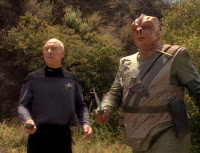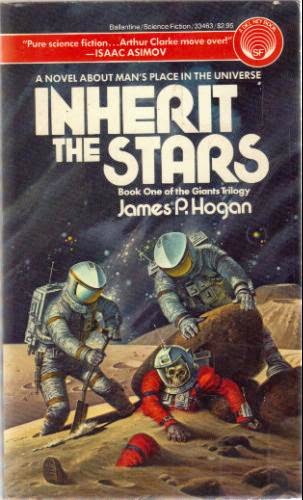Pushing this one up to the wire, but it’s technically still Thursday.
Somewhere…
So, there’s an author I follow on Twitter (she wrote one of my favorite books I read last year), and she was recently grumbling about something she’d run across. “I’m tired of the ‘everything sucks’ genre of fiction. We’re all corporate drones and suckers for advertisements – I get it.”
I remember sighing, because I knew just what she was talking about. I think we’ve all run into this sort of writing. The big-idea, big-character moment stories. Often—not always, but often—they’re stories that are so beautifully “real.”
A standard element in this type of writing is when a character has an epiphany—either on their own or pushed on them. A supposedly world-altering revelation about their life. About life in general—everyone’s life.
 I say “supposedly” because most of them are the sort of simple life lessons most people have figured out by… I don’t know, the time we turn twenty? Somewhere around there? That it’s better to be healthy and loved than to be cool or rich. That sometimes we have to compromise our beliefs to achieve certain goals. That big multinational corporations may have an agenda that doesn’t involve my personal health or financial prosperity. That advertising is trying to get us to buy stuff. Y’know, those sort of things.
I say “supposedly” because most of them are the sort of simple life lessons most people have figured out by… I don’t know, the time we turn twenty? Somewhere around there? That it’s better to be healthy and loved than to be cool or rich. That sometimes we have to compromise our beliefs to achieve certain goals. That big multinational corporations may have an agenda that doesn’t involve my personal health or financial prosperity. That advertising is trying to get us to buy stuff. Y’know, those sort of things. Minor aside. Can you imagine if I was bragging to someone about having cereal for breakfast? And—not to overlook this point—I prepared it! With no help from anyone. I didn’t even watch any YouTube instructional videos. I just grabbed that box, shook some Captain Crunch into the bowl, and poured on the milk.
I even fed myself. With a spoon and everything. I’m just that good.
Let’s stop and consider for a moment. Is this really an accomplishment I should be boasting about? That I should be particularly proud of? It’s like congratulating someone for having a stripper at their Las Vegas bachelor/ette party–so many people do it, it’s almost taken as a given.
Let’s stop and consider for a moment. Is this really an accomplishment I should be boasting about? That I should be particularly proud of? It’s like congratulating someone for having a stripper at their Las Vegas bachelor/ette party–so many people do it, it’s almost taken as a given.
And if this was the “big thing” you’d been going through two hundred pages to find out…?
I can’t help but think a lot of these moments get put in for one of two reasons. Well, really the same reason, just approached from two different points of view.
One is the kind of innocent one, The writer’s including this amazing revelation because they don’t grasp that everybody has these moments. The vast majority of people assume they’re “normal.” That everyone thinks the same way I do and knows the same stuff I know. So if I make a sudden discovery about the world, it kinda stands to reason that nobody else knew about this. Even if it’s something like “Whoa—did you know Stan Lee is in every one of the Marvel movies?”
 The other one is… okay, it’s the same one, but with a lot more attitude. Now the writer assumes that nobody has everknown this. They—and they alone—had the brilliance to spot this, and they’ve graciously decided to share their brilliant insight into the world with all those folks of lesser intelligence. This is when it’s suddenly “Most people don’t catch it, but Stan Lee is the bartender in Ant Man and also the delivery man in Civil War.”
The other one is… okay, it’s the same one, but with a lot more attitude. Now the writer assumes that nobody has everknown this. They—and they alone—had the brilliance to spot this, and they’ve graciously decided to share their brilliant insight into the world with all those folks of lesser intelligence. This is when it’s suddenly “Most people don’t catch it, but Stan Lee is the bartender in Ant Man and also the delivery man in Civil War.” Of course, as I said before, normally they’re not talking about Stan Lee cameos. We’re talking about priorities. We’re talking about the industrial complex. We’re talking about multimedia, like advertising and Twitter and random blog posts!
*ahem*
*ahem*
In a way, this is the flipside of an empathy issue I’ve mentioned here a few times. I even mentioned it up above. Sometimes, as a writer, I make the mistake of assuming that everyone knows all the same things I do—that they’ll get all my jokes and references. In this case, I’m assuming I found something all-new that nobody’s ever seen before.
My lovely lady friend came up with a term for this a while back, developed after many years of reading for screenplay contests. Simply put– it’s the moment when a baby discovers their own feet. It may be the coolest thing that’s ever happened in the life of the baby, but for the rest of us… well, it’s not quite as exciting.
Yeah, sure it is for the parents. But for everyone else? Can you imagine having your friends call you over to sit and watch their baby giggle at his or her toes for two hours?
 When a character figures out it’s more important to spend time with their loved ones than at work, they’re discovering their own feet. If someone comes to the jaw-dropping conclusion that they’ve messed up a life that was clearly messed up on page one, it’s their own toes they’re staring at. When someone realizes that bad things happen to good people and most other people don’t even care–OH MY GOD! The toes wiggle when I think about wiggling them!!!!
When a character figures out it’s more important to spend time with their loved ones than at work, they’re discovering their own feet. If someone comes to the jaw-dropping conclusion that they’ve messed up a life that was clearly messed up on page one, it’s their own toes they’re staring at. When someone realizes that bad things happen to good people and most other people don’t even care–OH MY GOD! The toes wiggle when I think about wiggling them!!!! This is one of the reasons I’m always encouraging people to read. I need to read in my genre, yeah, but outside it, too. All those best sellers and the bad stuff. I need to know what stories have been told, how they were told, and I need to have a good grasp of how well they’re know. This isn’t the 1820s anymore—it’s tough to be a writer and be disconnected from the world.
Because I really don’t want my big reveal to be that Ford’s top priority is selling trucks…
Next week, I’d like to give a belated sendoff to my favorite stewardess.
No, not a flight attendant. Back then, alas, she was considered a stewardess.
Until then… go write.







